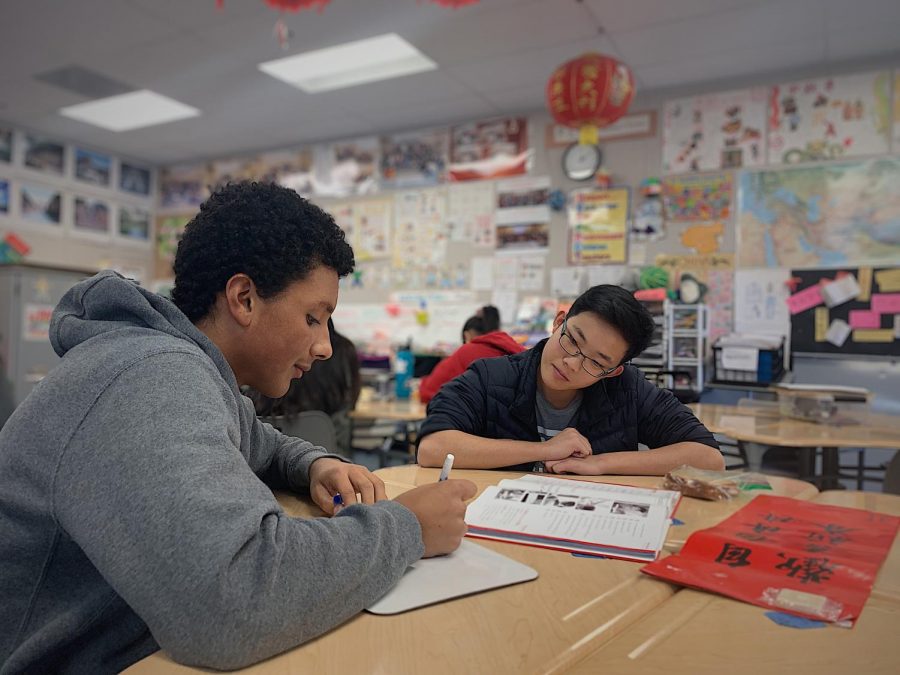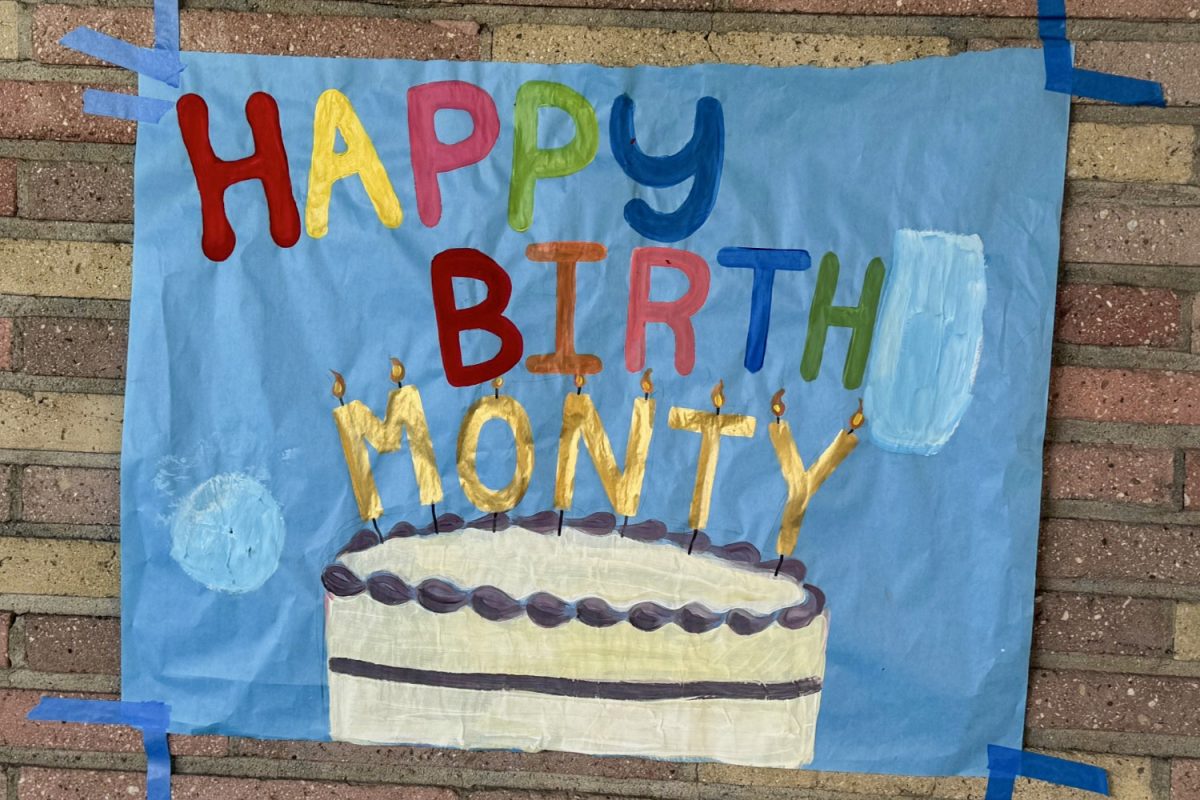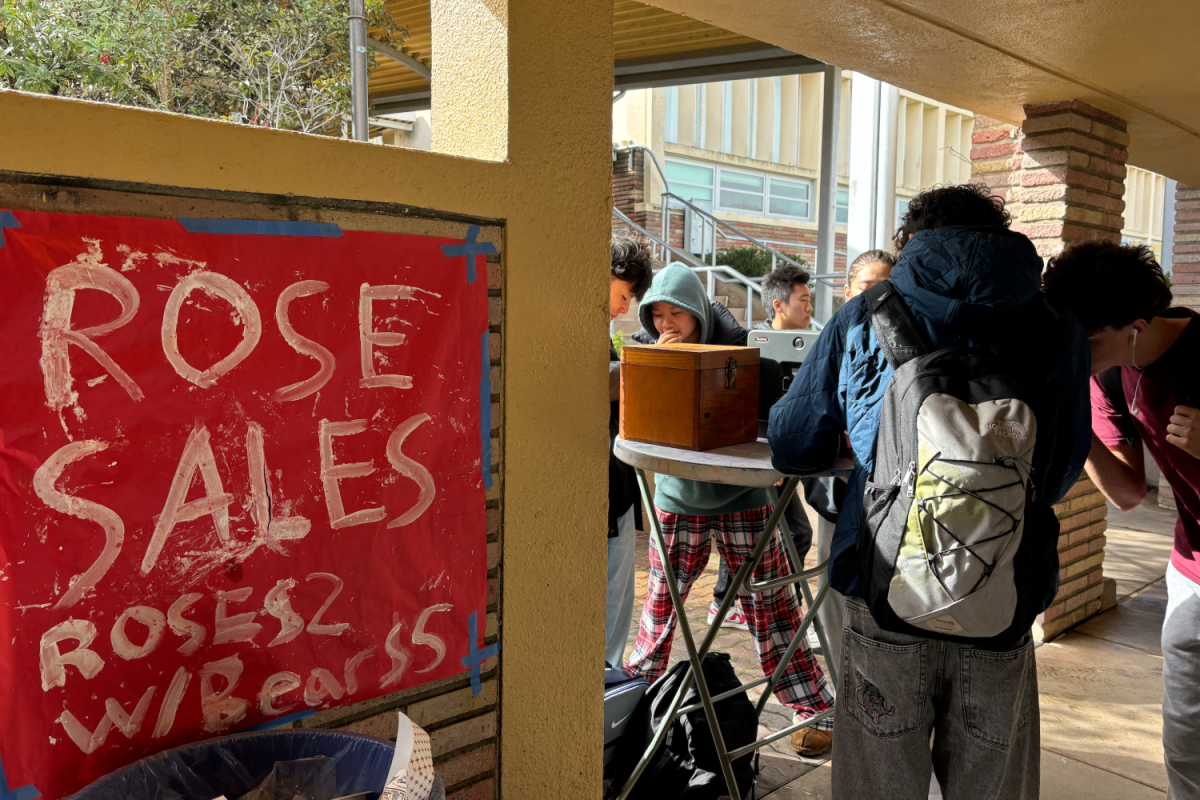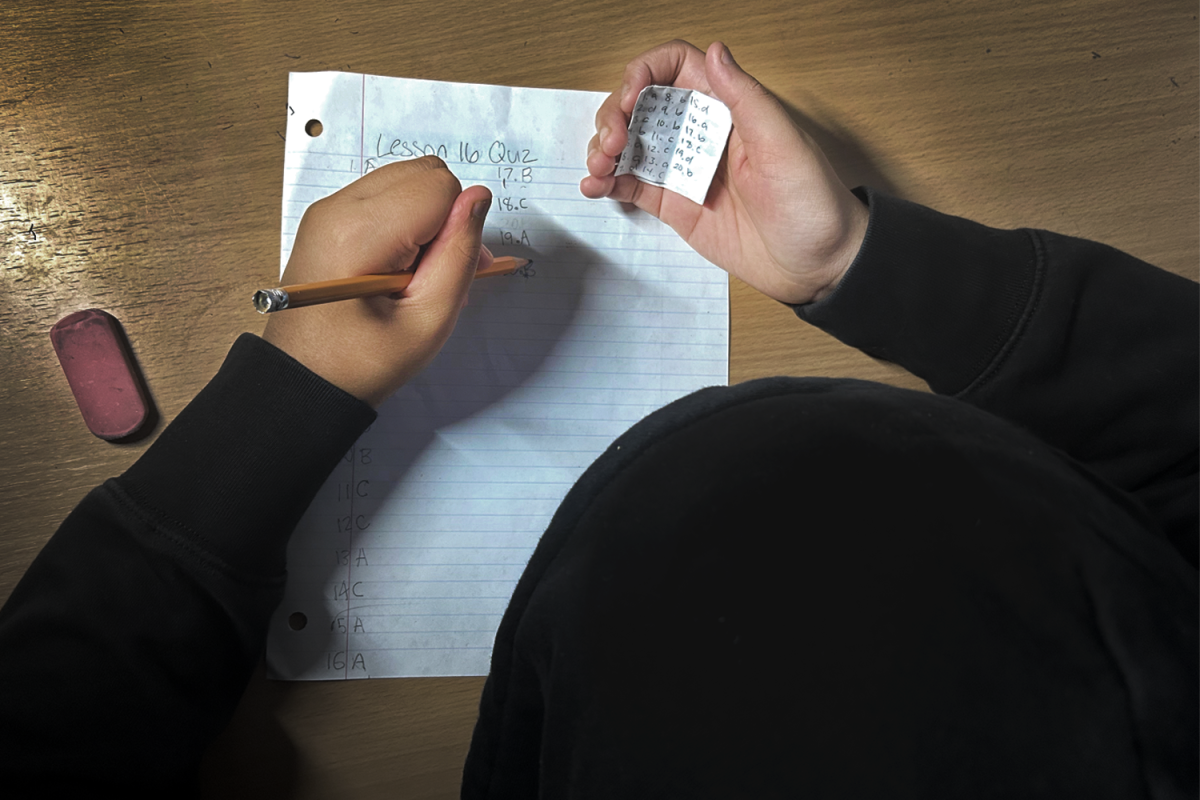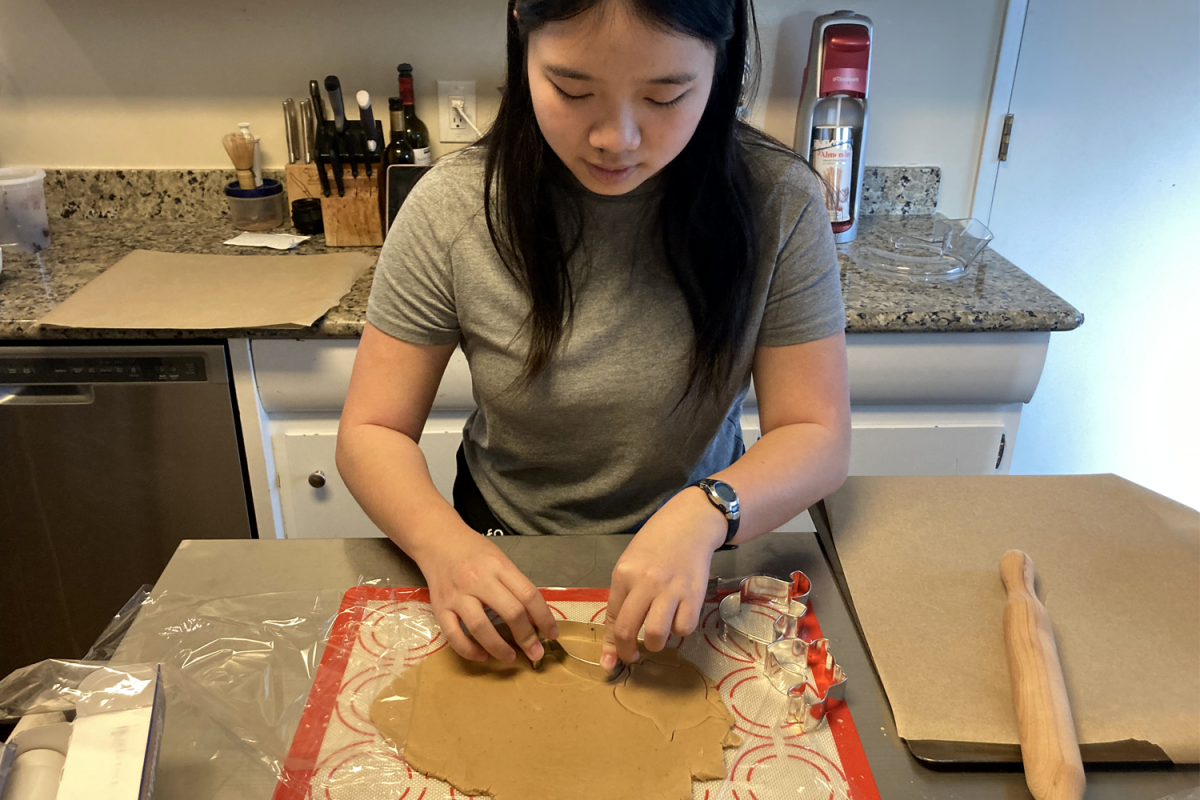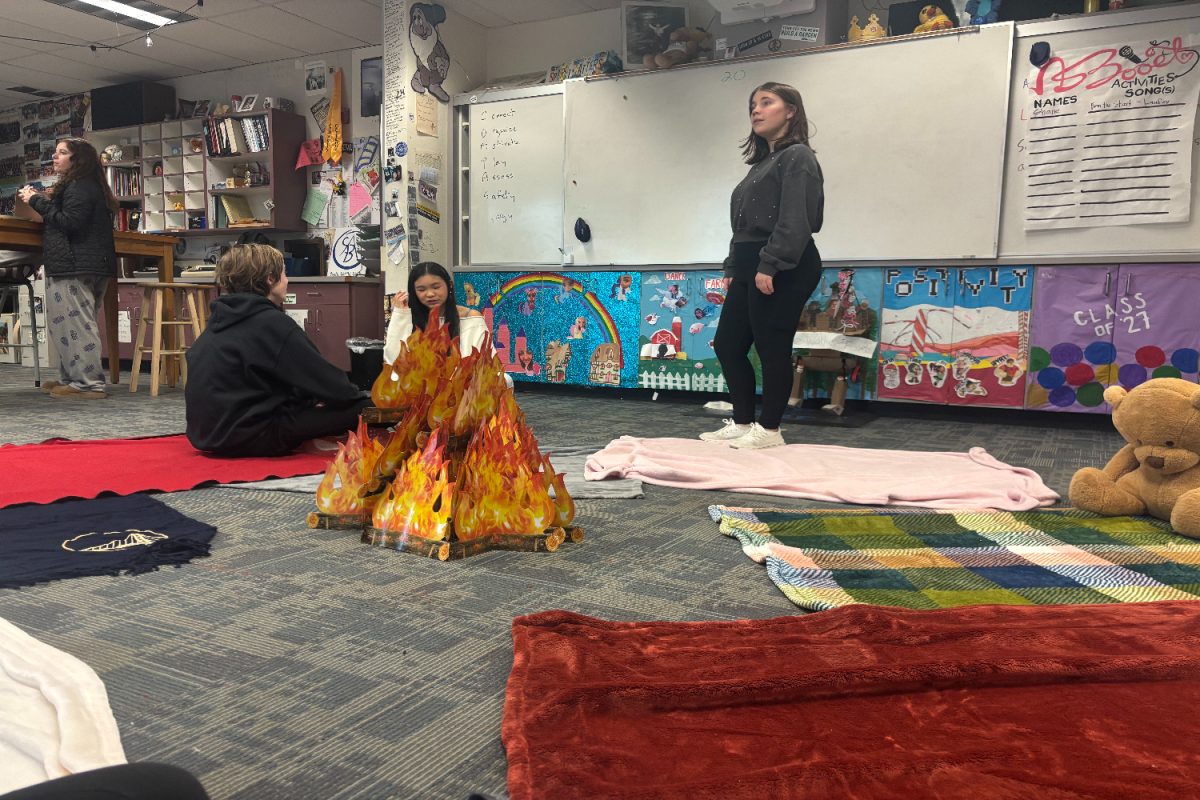Chinese Peer Tutoring club meets every Wednesday and Friday at lunch in U-14 to study with the support of their classmates and improve their Chinese language skills.
The club is structured to allow students to get help from fellow peers instead of relying on the teacher. Students split into different areas of focus such as speaking, reading, pronunciation, and grammar. The students that are stronger in one topic help the students that are struggling.
On average, professional Chinese language tutors often charge $35-$59 per hour.
“Not everyone can afford to have a professional tutor,” said sophomore and the club’s co-president, William Wong. “This way, this form of tutoring is accessible to all students and is beneficial in multiple ways.”
In spite of there being an existing after school tutoring center, this form of help encompasses several conflicts. Many students can not come after school due to extra-curricular activities and sports practices. In addition, the after school tutoring center does not focus directly on languages. With Chinese Peer Tutoring club, students do not need to stay after school and can spotlight their needs for help with the specific language.
While meeting twice a week, students mentor each other in a friendly environment. One has the chance to get tutored or tutor others to improve one’s Chinese skills without pressure.
“It’s helpful learning from my peers because they often have little memorization tools or study tactics that are helpful to me, and it’s a great way to learn,” said Ava Tsou, a sophomore.
Club members bring in treats every Friday to make study sessions more enjoyable. Classmates have the chance to bond in a way in which they might not usually be able to, in a typical class period.
Although there is already an existing Chinese Culture club, the two clubs are drastically different. Chinese Culture club focuses more on cultural aspects, and club members do activities such as cooking Chinese foods and celebrating various ethnic events like Chinese New Year and the Mid-Autumn Festival.
In contrast, Chinese Peer Tutoring club concentrates on gaining educational benefits by working on language-related topics.
With this being a new club, participation levels are relatively low. The club presidents strive to attract more students by advertising their club and creating more learning-based projects. In the near future, the club leaders aspire to expand their club to other languages the school offers.
“We want to make it so that the students don’t see this as a waste of time, but actually as something useful,” said Michael Father, a sophomore and co-president of the club.

